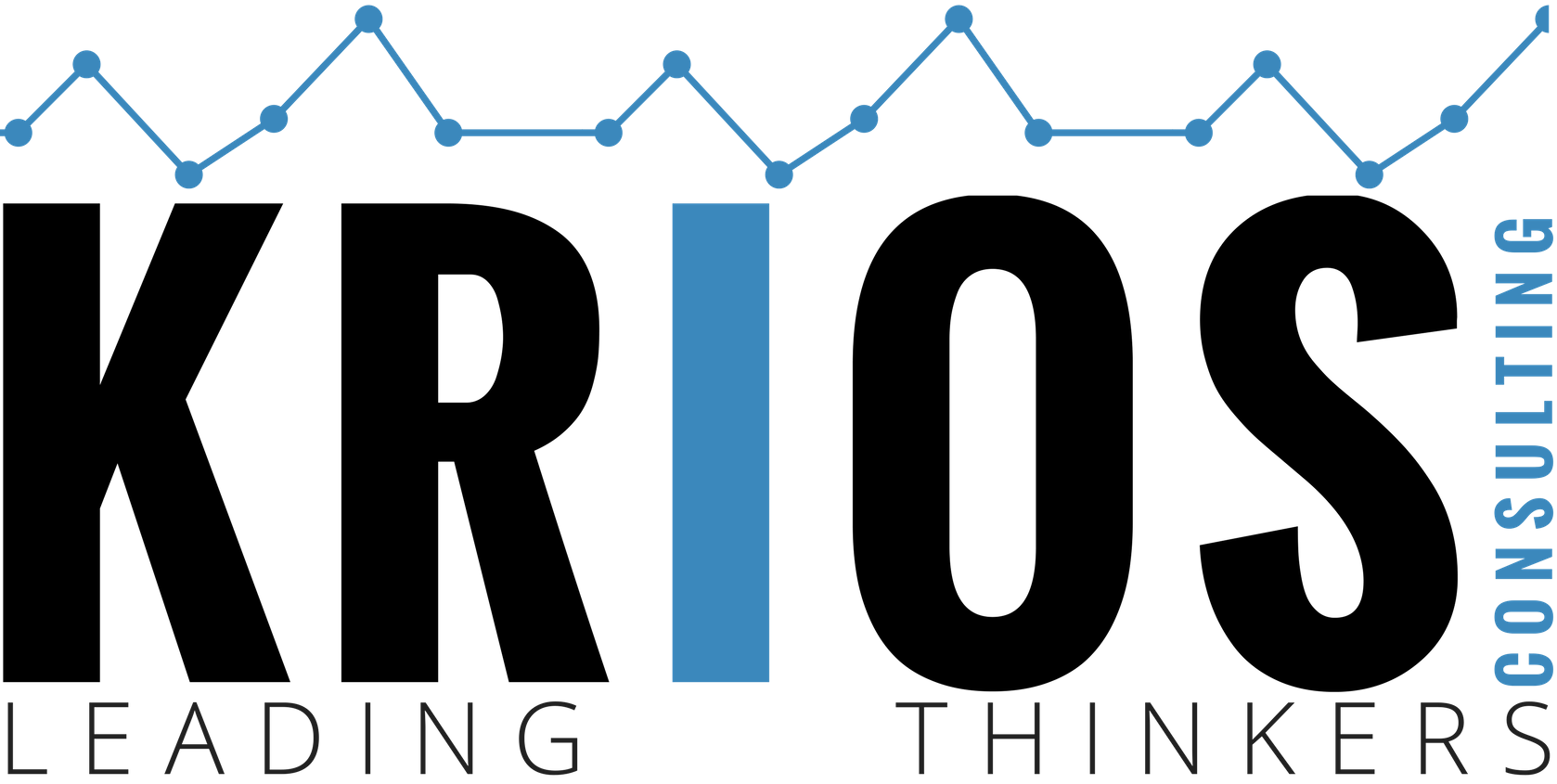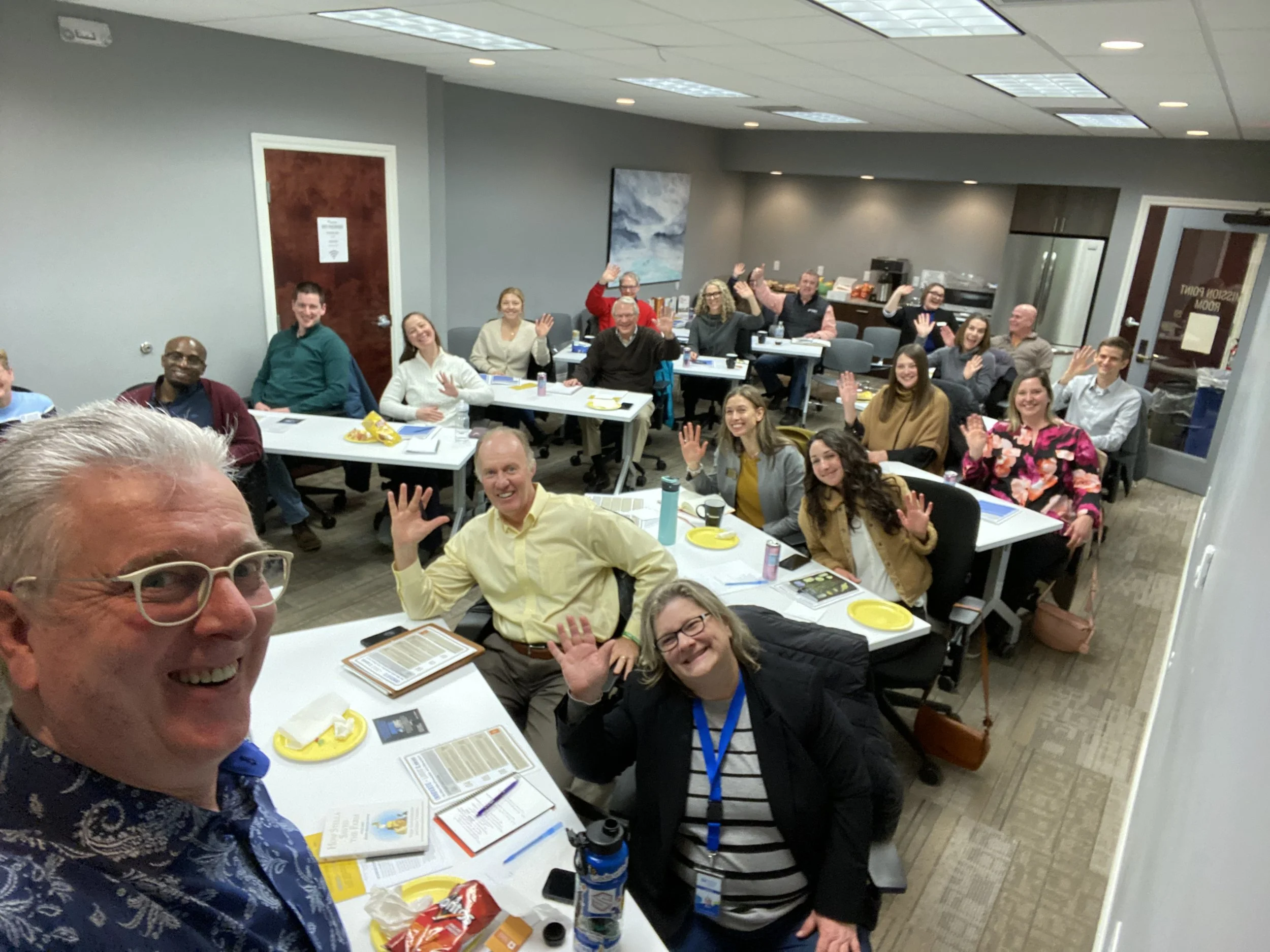To AI or Not to AI
Where do we stand on the use of AI in our work? This question is suddenly common here at the offices of Krios Consulting and with our clients. It’s especially true as tools like ChatGPT, Claude, and other large language models (LLMs) are becoming more common in business.
Our stance on AI has always been cautious. While we encourage early adoption of new technologies as a strategic advantage, AI presents potential ethical challenges.
As the founder of Krios Consulting, I’ve always believed in putting people first. Incorporating AI into our business model felt like placing that notion on the shelf, and I wasn’t entirely convinced we’d survive it.
AI brings up a host of ethical questions. As a business deeply invested in the vocabulary of business, culture, and decision-making, we know just how significant those questions are. Issues of data privacy, employee and customer privacy, potential biases embedded within AI models, and the fundamental need for human oversight make us tread carefully. For a while, I felt strongly that steering clear of AI might be the safer path. My friend Ken Hartman has a terrific blog post on AI privacy on his Lucid Truth blog. Read it here: https://lucidtruthtechnologies.com/legal-discovery-ai-chat-sessions-as-a-new-frontier/
“as artificial intelligence integrates more deeply into everyday business and legal practice, it also opens new avenues for legal discovery—particularly in the context of litigation and evidence gathering.
In the near future, targeting large language model (LLM) chat history may become a key legal tactic. Lawyers will need to be prepared not only to employ these records in discovery but also to defend against their potential misuse. ”
But, as we’ve watched the technology continue to develop and its capabilities expand over the past two years, it became impossible to ignore the true potential of responsible AI use. I’ve begun to soften my stance somewhat. When deployed thoughtfully and ethically, AI can support our work in meaningful ways—primarily by aiding our research and providing a valuable tool for handling certain non-critical activities. We’ve begun to use AI in our work, and it’s indeed become an integrated element within tools we already utilize from outside vendors like Grammarly, Canva, LinkedIn, Google, and Microsoft products. For instance, AI has significantly improved our data analysis process and has helped us create more engaging meeting agendas, workshop exercises, and client reports.
Our guiding principle, however, remains unchanged: transparency. At Krios Consulting, we are committed to letting you know when and how we use AI. We have a clear policy in place: we will always be upfront about our AI usage, ensuring you have complete visibility into our practices.
When AI tools like ChatGPT assist us, it will always be in ways that support, rather than replace, our people-centric approach. We won’t use AI to make high-stakes decisions or critical customer-facing tasks. We won’t put the privacy of our clients at risk. Instead, AI will be a behind-the-scenes helper, organizing data, gathering insights, and handling some of the “heavy lifting” so that our team can focus on what matters most—serving our clients with integrity, care, and precision. Our people will always be at the heart of our operations.
“ChatGPTito ergo sum?”
Our people will always be at the heart of our operations.
As we progress, we promise you that we will always make our AI usage public. When we use AI, you’ll know it. We’ll identify how it is applied and where human oversight and expertise have taken the lead. Look for our “THE AI TRUTH” callout in our work.
At Krios, we believe in a thoughtful approach to innovation—one where technology serves our mission without compromising our values.
Thanks for listening and Stay Awesome!
*THE AI TRUTH:
AI (ChatGPT) created the initial draft of this article. Our founder, Bill Palladino, used the draft as a reference to rewrite the post in his voice. It was then processed through Grammarly to help clarify usage and correct punctuation.



